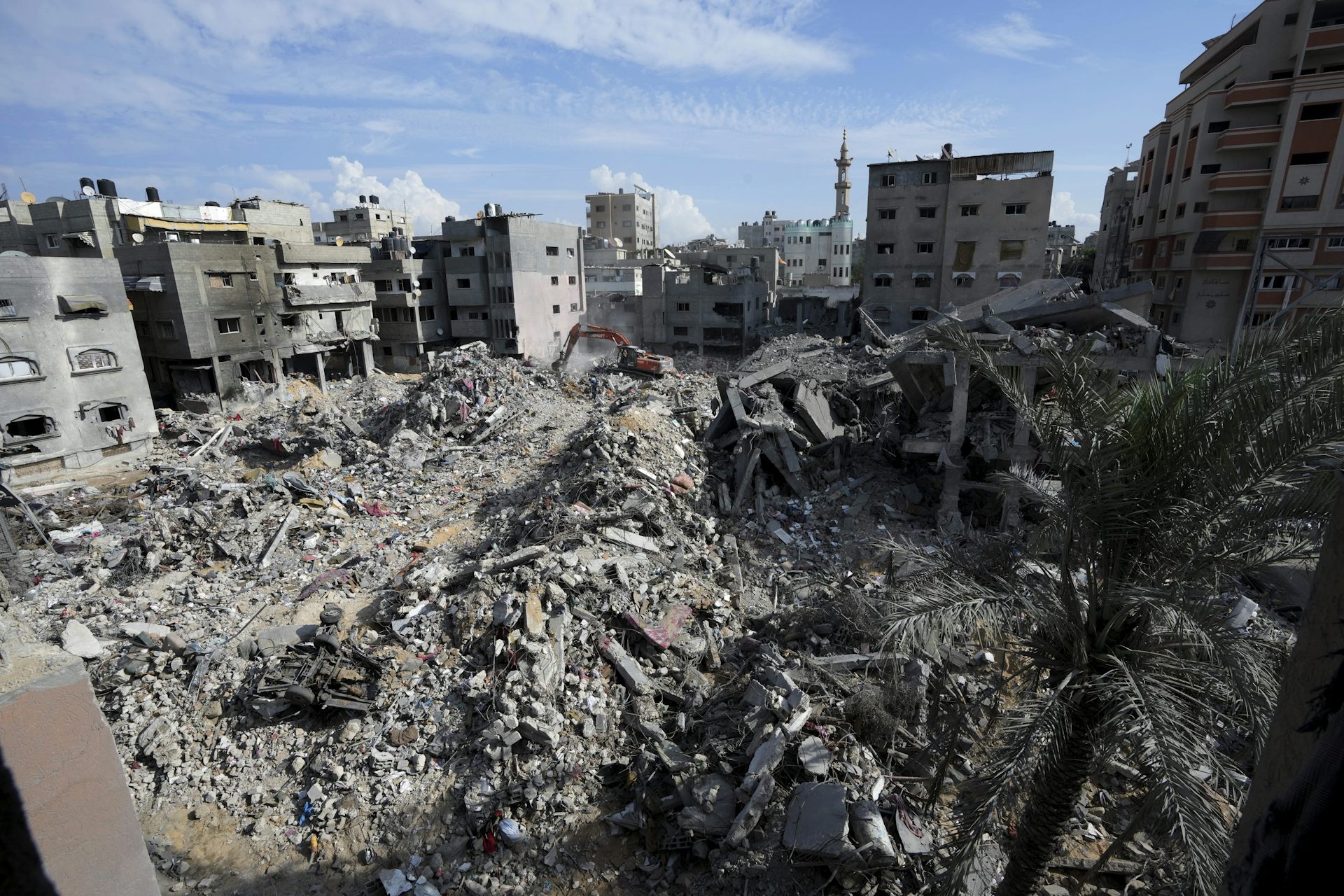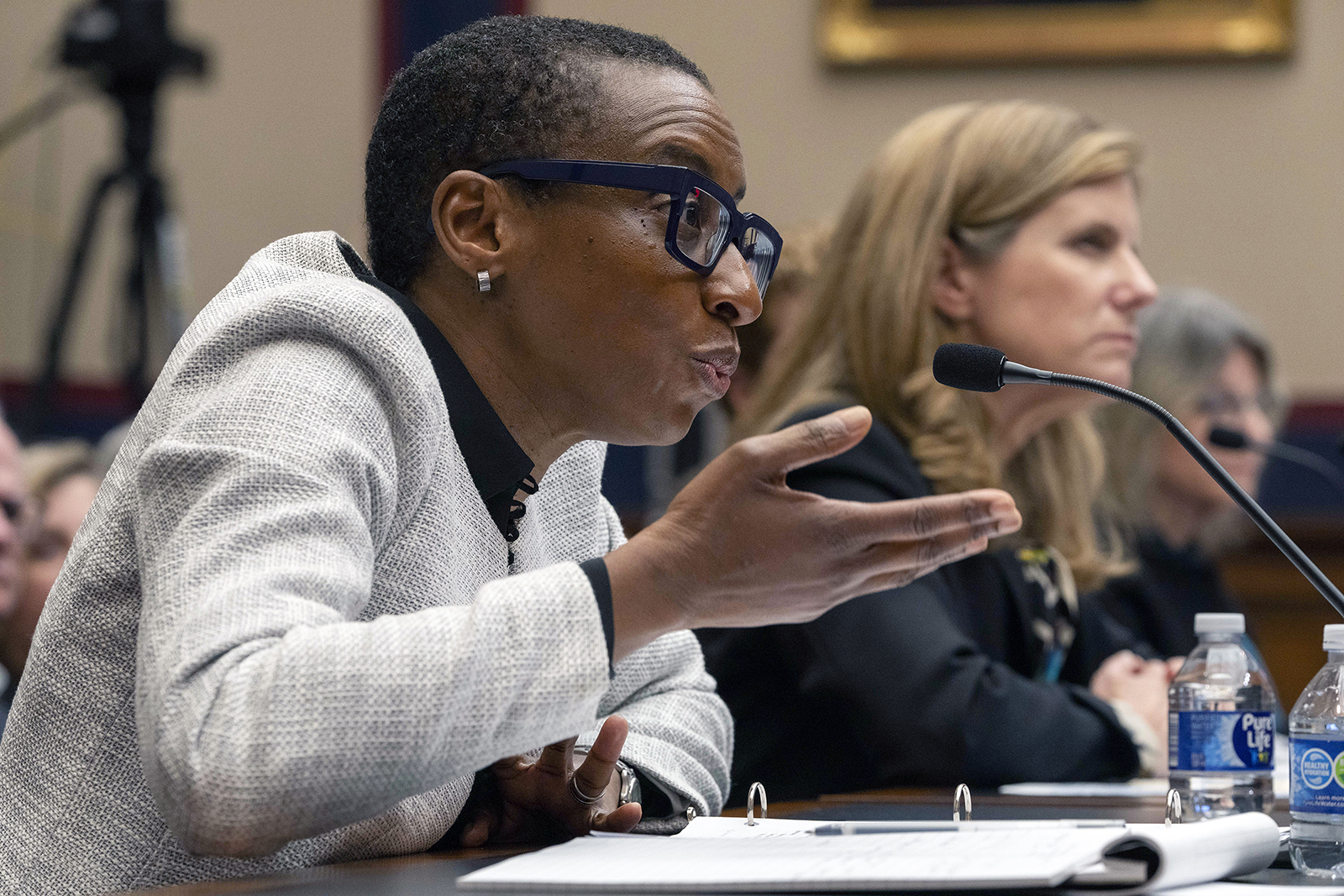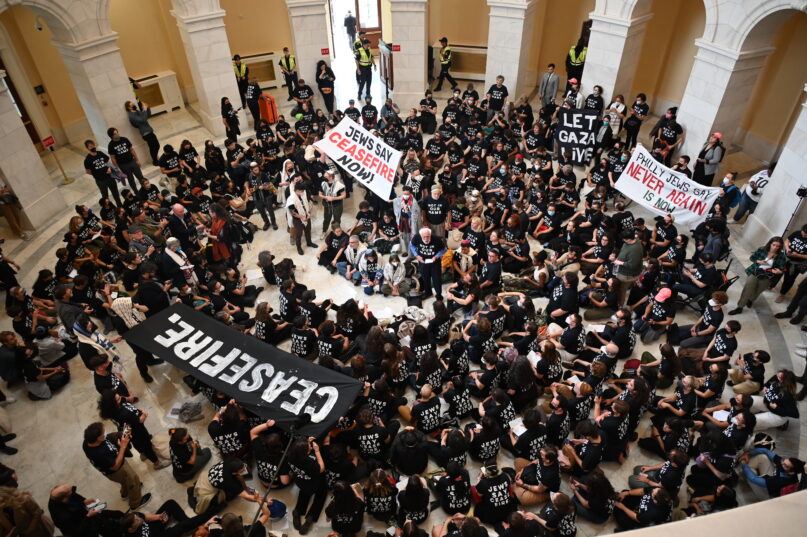(RNS) — Appearing at the March for Israel on the National Mall two months ago, CNN political analyst Van Jones called for an end to violence. The crowd, comprising mostly American Jews and supporters of Israel, shouted him down.
“No cease-fire! No cease-fire!” came the chanted response from the audience of some 200,000 when Jones said he wanted to see an end to Hamas rockets and Israeli bombings.
But 100 days after Hamas’ Oct. 7 attack on southern Israel, American Jewish sentiment about the devastating reprisal in Gaza is changing.
On Monday (Jan. 22), J Street, the liberal American Jewish organization dedicated to a peaceful resolution of the Israeli-Palestinian conflict, called for an end to the war. “The time for war has come to a close,” J Street’s statement said. “Now is the time to lead with diplomacy.”
Two weeks ago, another progressive Jewish group — Americans for Peace Now — also called for “an immediate cessation of hostilities.” And in a carefully parsed statement, T’ruah, the rabbinic human rights organization, said last month it wanted to “end the war as soon as possible.”
Early in the war, Jewish groups on the far left rallied for a cease-fire as Israel began a massive retaliation for the Hamas attack, which killed 1,200, mostly Israelis. Members of organizations such as Jewish Voice for Peace and IfNotNow shut down Grand Central Station in New York City and in one demonstration, chained themselves to the White House fence.
RELATED: Protests suggest split among US Jews on war, but support for Israel is high
But those cease-fire calls, which came from groups like Jewish Voice for Peace that represent anti-Zionist positions or whose members termed Israel’s military response in Gaza a genocide, were dismissed by the majority of American Jews.
“A premature cease-fire, without ensuring the elimination of Hamas’ military and governing capabilities, will only prolong that organization’s reign of terror over the people of Gaza, perpetuate its threat to the Israeli citizenry and doom any prospect of a political end to the Israeli-Palestinian conflict,” Ted Deutch, the CEO of the American Jewish Committee, said last month.
Now, with about half of all Gaza buildings leveled, 2 million people displaced and more than half a million Gazans facing what U.N. agencies warn as “catastrophic hunger,” more U.S. Jews, most of whom are liberal-leaning, are now questioning the war’s goals.
“There is a shift underway,” said Dov Waxman, professor of Israel studies at the University of California, Los Angeles. “Groups on the center left that were previously supportive of the war are gradually coming to endorse some kind of a cease-fire.”
That shift can also be seen among members of Congress, including those who are Jewish. As of Monday, 65 members of Congress have called for a cease-fire or cessation of hostilities in the war.

The scene in the Bureij refugee camp following an Israeli bombardment of the Gaza Strip on Nov. 14, 2023. (AP Photo/Adel Hana)
Rabbis, too, are speaking up. Some 265 rabbis and rabbinical students have signed an open-ended “Rabbis for Ceasefire” petition. (Of those, about 180 are ordained.) Though a relatively small slice of U.S. rabbis, among them are members of all the U.S. Jewish denominations.
The primary motive for the petition was to save innocent Palestinian lives, said Rabbi Alissa Wise, the group’s founder. A secondary purpose “is safeguarding the moral center of Judaism, which is part of the obligation that we have signed up for as rabbis when we become rabbis and decide to serve the Jewish people,” Wise said.
Last weekend, 10 synagogues from around the country came together to host a Shabbat for Ceasefire that was livestreamed from congregations on the East and West Coasts. Several hundred people participated in afternoon Torah study and workshops that examined such concepts as revenge, retaliation and restorative justice, organizing and self care. In Baltimore, Congregation Hinenu invited a Palestinian poet to give the Saturday sermon.
Rabbi Aryeh Cohen, a professor of rabbinic literature at the Conservative movement’s Ziegler School of Rabbinic Studies, in Los Angeles, who signed the cease-fire petition, said he was deeply disappointed in the American Jewish establishment’s siloed Israel-centric vision of the war.
“There’s going to come a day of moral reckoning,” he said. “The establishment Jewish organizations are going to have to look in the mirror and say, what did we do?”
The vast majority of U.S. rabbis, like most of the established Jewish institutions, have argued that Israel has a right to defend itself against Hamas. Other Jewish clergy may have qualms about the war but face internal pressure from congregants who are still grieving or lost loved ones in Hamas’ devastating massacre on Oct. 7.
And then there’s the issue of funding.

Harvard President Claudine Gay, left, speaks as University of Pennsylvania President Liz Magill listens, during a hearing of the House Committee on Education on Capitol Hill, Dec. 5, 2023, in Washington. (AP Photo/Mark Schiefelbein)
Universities such as Harvard, M.I.T. and the University of Pennsylvania faced revolts from conservative donors, some of whom demanded the resignations of the schools’ presidents, whom the donors saw as not denouncing antisemitism with sufficient force. Many synagogue leaders face the same pressures to support Israel.
‘“All it takes is one funder to say, you lose a million dollars if you sign this,” said Eric Alterman, a historian and the author of “We Are Not One: A History of America’s Fight Over Israel.”
Last month, more than 1,000 current and former members of the Union for Reform Judaism, the largest Jewish denomination in the U.S., signed a letter for “an immediate cease-fire in Israel and Palestine.” The movement itself has not. Neither has the United Synagogue for Conservative Judaism, the second-largest Jewish denomination.
Those not affiliated with Jewish denominational life have faced fewer hurdles.
“Rabbis for ceasefire has been a great boon because it’s officially ad hoc, it doesn’t have official organizational connection and that makes it easier and freer for some of us,” said Rabbi Ellen Lippmann, a retired rabbi from New York City who founded the nondenominational Kolot Chayeinu in Brooklyn.
Moving forward, experts say support for Israel’s war will continue to unravel. Some 2,000 Palestinian and Jewish citizens of Israel marched through Tel Aviv last week to demand an end to the fighting. That will strengthen American voices, too.
“People are increasingly recognizing that there is no military solution to the problem of Hamas ultimately, and more broadly that there needs to be a solution to the Israeli Palestinian conflict,” said Waxman. That recognition, he added, will invariably put people at odds with Israel.
RELATED: Elon Musk visits Auschwitz after uproar over antisemitic messages on X





